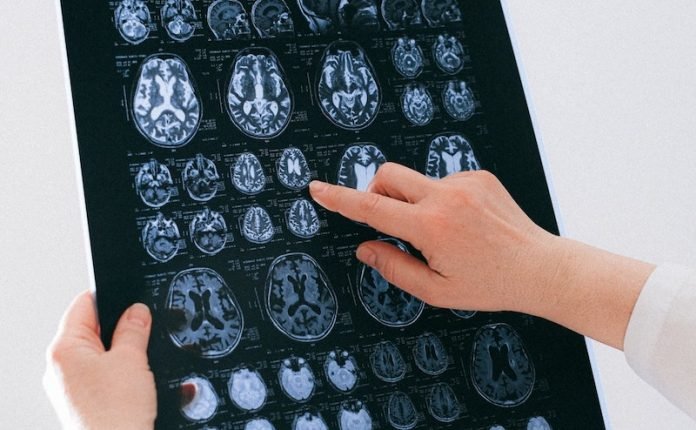
Scientists from UCLA and elsewhere found that brain injury is a cause of dementia in some older adults.
They find that, with the use of MRI scans, it is possible to distinguish between memory loss caused by Alzheimer’s disease and traumatic brain injury.
The research is published in the Journal of Alzheimer’s Disease and was conducted by Dr. Somayeh Meysami et al.
In the study, the team examined 40 UCLA patients with an average age of just under 68, who had suffered a traumatic brain injury, TBI, and later developed memory problems.
According to the U.S. Centers for Disease Control and Prevention 2.87 million Americans experienced TBI in 2014, with the rates highest for people age 75 or older.
Using a software program to analyze the MRI scans, the team found that TBI caused the most damage to a brain region known as the ventral diencephalon, with the least amount of atrophy occurring in the hippocampus.
The ventral diencephalon is associated with learning and emotions, whereas the hippocampus is involved in memory and emotions. The hippocampus also is the region of the brain that is most impacted by Alzheimer’s disease.
The team says the method to measure brain volumes in these individuals is useful because it can be applied to the same type of MRI scans in the clinic with no special type of imaging required.
The Alzheimer’s Association estimates that up to 40 percent of dementias are caused by conditions other than Alzheimer’s disease.
The study offers further evidence that not all memory loss is caused by Alzheimer’s disease. It can be attributed to TBI, as well as other dementias and neurodegenerative disorders.
Sign up for our newsletter for more information about this topic.
If you care about dementia, please read studies that taller men have a lower dementia risk, and this MIND diet may protect your cognitive function, prevent dementia.
For more information about brain health, please see recent studies that antioxidants may protect you from dementia, and results showing this eye surgery may reduce dementia risk.
Copyright © 2022 Knowridge Science Report. All rights reserved.



